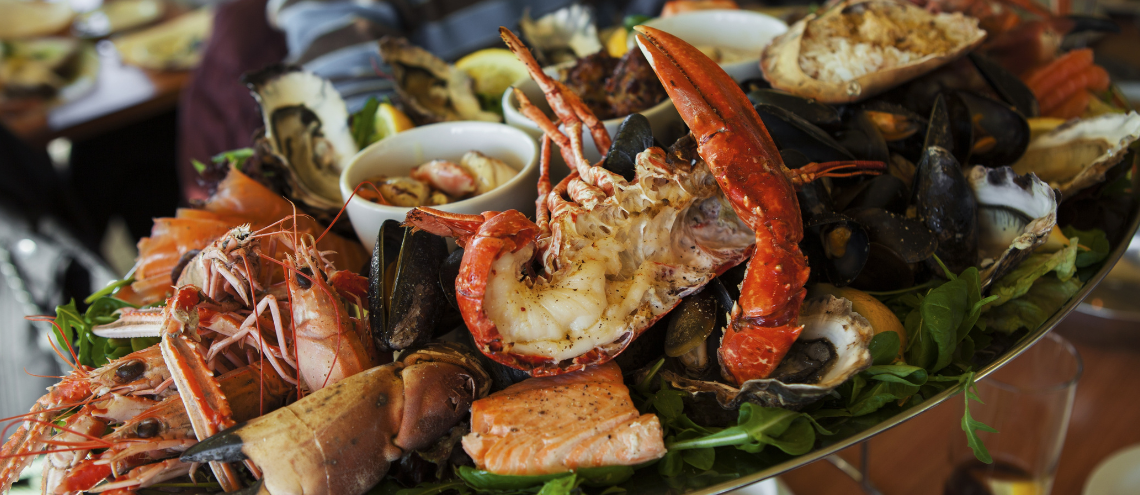A Guide to Food Poisoning Symptoms for Expats in Thailand
Notable symptoms of food poisoning, which is caused by accidental consumption of contaminated food or drinks, may include an upset stomach, diarrhea, and vomiting. All these symptoms could manifest within hours or weeks following the consumption and may include additional symptoms as well.
Are you an expat looking to stay insured and protect yourself from food poisoning? This article by Pacific Prime Thailand will discuss the symptoms of food poisoning in Thailand, as well as identifying causes and prevention tips for expats.
What is Food Poisoning?
True to its name, food poisoning is a foodborne illness caused by accidental consumption of food and drinks contaminated by harmful bacteria, viruses, parasites, and other pathogens. Common symptoms include vomiting, diarrhea, and an upset stomach.
While most of these symptoms aren’t serious, they can be life-threatening if they severely persist and the body becomes dehydrated. Food poisoning can happen to any age and gender, particularly countries known for hot weather like Thailand as the heat allows germs to grow and multiply.
Symptoms of Food Poisoning
The exact symptoms of food poisoning will vary depending on the particular contaminant, but usually include an upset stomach, vomiting, and diarrhea. Symptoms can manifest within hours to weeks following the accidental consumption.
Below are the most common symptoms of food poisoning:
- Diarrhea
- Upset stomach
- Nausea
- Vomiting
- Fever
In rare instances, food poisoning can also reach the nervous system and cause some additional symptoms such as blurred vision, a tingling and numbing sensation, and more. Below are some possible additional symptoms of food poisoning should it affect the nervous system:
- Malaise and fatigue
- Swallowing difficulties
- A tingling and numbing sensation in the skin
- Blurred or double vision
- Loss of limb movement
- Voice change
Potential Complications of Food Poisoning and When to Seek Medical Attention
Some food poisoning symptoms can be serious or life-threatening, requiring hospitalization, and may lead to other health problems like kidney damage and failure or arthritis. Below are serious complications that may result from persistent symptoms of food poisoning:
- Meningitis
- Arthritis
- Kidney damage
- Hemolytic Uremic Syndrome (HUS), which can also lead to kidney failure.
- Brain and nerve damage
While some may experience persistent symptoms of food poisoning and further complications, symptoms of food poisoning in most cases can last for a few hours or several days. However, if you experience any of the following symptoms, see a doctor immediately:
- Bloody diarrhea.
- A diarrhea that lasts for over 3 days.
- Severe stomachache that doesn’t decrease even after going to the bathroom.
- A high fever of over 102°F (approximately 38.8°C).
- Frequent vomiting to the point of being unable to keep liquids down.
- Signs of dehydration, such as lack of urination, dry mouth and throat, or dizziness when standing.
- (For pregnant women) Fever and flu-like symptoms, as mild infections may cause problems with pregnancy.
Warning Signs of Food Poisoning
Some warning signs of food poisoning to look out for include appetite loss, a feeling of nausea, abdominal pain, and more. If you or anybody in your family starts developing any of these slight warning signs, it could be an indication of food poisoning symptoms to come.
Below are the warning signs of food poisoning.
- Loss of appetite.
- Feeling bloated, nauseous, vomiting, or constant diarrhea (potentially accompanied by blood).
- Persistent stomachaches
- Symptoms of dehydration like tiredness, lethargy, a dry mouth, frequent thirst, or low urination.
- High fevers, chills, and body aches.
Causes of Food Poisoning
Generally speaking, food poisoning is caused by food and drinks contaminated by pathogens such as bacteria, viruses, or parasites. Some of these contaminants include Salmonella, E. Coli, or the Hepatitis A virus.
Below are some notable pathogens and contaminants that cause food poisoning as well as their sources and symptoms:
- Salmonella: The Salmonella bacteria can be found in raw meat, eggs, as well as dairy products, and the symptoms (which manifests within six hours to six days) include diarrhea, a runny nose, nausea, and vomiting.
- E. Coli (Eschericha Coli): This particular bacteria can be found in raw or undercooked meat, unpasteurized milk and juice, raw vegetables (such as lettuce or sprouts), and contaminated water. Symptoms may include watery diarrhea, stomachache, and vomiting within 1 to 10 days.
- Hepatitis A: Food poisoning is a common cause of Hepatitis A, which can happen if you eat raw or undercooked shellfish or fresh, unpeeled, or uncooked produce, or if you drink contaminated water or make ice out of contaminated water. Symptoms can appear within 2 to 3 weeks.
In other cases, food poisoning is caused by accidental expired food consumption or food that’s gotten moldy, improper storage, or improper hygiene. Additionally, certain types of food like vegetables and fish may already be contaminated right from the farm or fishery.
This also means contamination can happen as early as growing and harvesting, catching, processing, storing, shipping, or preparing. What’s more, food can also be contaminated if left unattended at room temperature or stored in refrigerators that are too warm.
Further reading: Food Poisoning vs Stomach Bug: What’s The Difference?
Who’s at Risk of Food Poisoning?
People at risk of food poisoning include children, individuals whose immune system has weakened due to age or illnesses, and pregnant women. Below are the types of people who may be at a higher risk of developing symptoms of food poisoning:
- Children under the age of 5: Because young children’s immune systems are still in the midst of development, their bodies’ ability to fight off germs and other pathogens may not be as strong as older kids or teenagers.
- Individuals with weakened immune systems: Whether it’s due to age (such as adults older than the age of 65) or illnesses, individuals with weakened immune systems are also more vulnerable to the effects of food poisoning as their body may not recognize these new pathogens.
- Pregnant women: Pregnancy affects a woman’s immune system, which means they won’t be able to fight off any foodborne pathogens during this time.
Foods That May Cause Food Poisoning
Some foods that may cause food poisoning include raw, undercooked meat, some dairy and egg products, or vegetables. Common risk factors for these foods include its raw and uncleaned status. Below are the various types of food that may cause food poisoning:
- Meat and Seafood: Raw and undercooked meat or seafood may cause food poisoning due to parasites or bacteria such as Salmonella and E. Coli.
- Unpasteurized Milk and Dairy Products: Unpasteurized milk (and, by extension, any dairy products made from said unpasteurized milk such as cheese) contains dangerous germs such as E.Coli, Salmonella, or Listeria, and others that can cause food poisoning.
- Uncleaned Vegetables: Unwashed fruits and vegetables (especially lettuce and salad) may contain E. Coli or other germs that cause food poisoning. Additionally, certain vegetables may still have some pesticide left, which requires additional washing before eating.
- Eggs: Undercooked or raw eggs may contain Salmonella bacteria, which may be passed from chickens.
As you can see, Salmonella is a common culprit among these types of food that can cause food poisoning. Thus, always make sure to eat freshly cooked meals and avoid undercooked or raw food, which brings us to our next point.
Food Poisoning Prevention
The key to preventing food poisoning is to carefully select what you eat. As mentioned earlier, avoid eating raw, undercooked food such as meat, seafood, or eggs, as they may contain Salmonella and other kinds of dangerous bacteria or other potential pathogens.
Instead, always make sure to fully cook meat and fish rather than eating them rare as insufficient heat might not be enough to kill off the germs. Additionally, always wash down your vegetables before eating to get rid of any possible leftover pesticides from the farming and harvesting process.
Make sure you also wash your hands before eating and properly clean all kitchenware thoroughly to prevent contamination when your hands or the kitchenware come into contact with the food when preparing.
Don’t leave your leftover food unattended at room temperature as they can become susceptible to contamination. Additionally, make sure your refrigerator temperature is cold enough for storage as any excess warmth could prompt bacteria growth.
When buying any food with expiry dates printed on the packaging, make sure you also read the printed expiry dates and plan how many you need so you can eat them all before they reach the expiry date.
Food Poisoning Treatment
The exact method of food poisoning treatment will depend on the severity of your symptoms and what was the culprit for your case.
For instance, if your case of food poisoning is caused by bacteria, you may be prescribed antibiotics, which are for people with severe diseases or those with a high risk of further complications.
On the other hand, if your case of food poisoning is due to parasites, you may be prescribed antiparasitics. An antiparasitic drug kills the parasite and their eggs, which stops further growth.
Since you may be left dehydrated due to symptoms of food poisoning, you may also be prescribed electrolytes for fluid replacement. These fluids include minerals such as sodium and calcium, and can replenish lost body fluids after vomiting or diarrhea.
However, severe dehydration may require going to the hospital, where you’ll be fed fluids and electrolytes directly into your bloodstream. Your doctor may also recommend that you get probiotics, which help replace healthy bacteria in your digestive system.
Food Poisoning Home Remedies
In the meantime, there are ways to reduce the discomfort and manage your food poisoning symptoms. The first remedy for food poisoning is making sure you stay hydrated as often as you can by drinking plenty of water in addition to taking electrolytes, as this will help replenish lost body fluids.
If you’re hungry, stick to bland, low-fat, low-fiber foods without extreme condiments like seasonings or strong sauces, as these can further irritate your stomach. Carbohydrates like plain pasta, potatoes, rice (or rice porridge), crackers, or toast are highly recommended due to simple digestion.
Getting sufficient bed rest is another good way to help your exhausted body heal from food poisoning following each time you vomit or experience diarrhea, so make sure you get plenty of rest until you feel better.
If you have a fever as part of your symptoms, you can take Tylenol pills (which should be available at any local pharmacy or convenience store chains in Thailand like 7-11) to reduce symptoms.
Do keep in mind, though, that most doctors won’t really recommend anti-diarrheal drugs such as Imodium unless necessary, since diarrhea is the body’s natural method of repelling toxins from your body.
If you’re unsure about medication recommendations or the uncertainty of your symptoms, seek medical attention immediately.
Further reading: Medicine and Treatment for Food Poisoning in Thailand
Conclusion
In conclusion, symptoms of food poisoning, regardless of the severity, is something expats in Thailand should never overlook. Common symptoms may include stomachache, nausea, vomiting, and fever. What’s more, some may also experience further complications.
Beyond eating past the expiry date, food may also get contaminated due to improper storage or as early as the farming or catching processes. While symptoms can be harmful, treatment is not outside the realm of possibility entirely with fluids, medication, and taking it easy on what you eat.
Even if the risk of food poisoning is all around, you can always craft a safety net for yourself and your family with a health insurance plan. Having a health insurance plan with the right areas of coverage will help lessen your financial burden from medical bills in case of illnesses or injuries.
While finding a suitable health insurance plan may be daunting, considering the number of plans available at different price points from numerous providers, it doesn’t always have to be a headache, and we’re here to help you.
As an experienced health insurance broker, Pacific Prime Thailand can help you select suitable health insurance plans that align with both your budget range and your unique healthcare needs.
Whether you’re an expat in Thailand or a local Thai citizen yourself, our team of specialists will be more than happy to help you out with completely impartial advice at no additional cost.
If you have any questions or would like to compare plans from multiple insurers, please don’t hesitate to get in touch with us and get a free quote here.
Frequently Asked Questions
Where is food poisoning most common?
Food poisoning is particularly common in retail restaurants and caterers in the streets. According to the CDC, 2 out of 5 foodborne illnesses could be attributed to sick workers who may contaminate the food.
What’s the best way to remedy the symptoms of food poisoning?
The best way to remedy the symptoms of food poisoning is to stay hydrated, as this will help replenish and maintain your body fluids following each time you experience diarrhea or vomit. Also, stick to bland foods without extreme condiments so you don’t further irritate your stomach.
How long does it take to recover from food poisoning?
The exact recovery time for food poisoning will depend on the severity of the symptoms. For instance, mild symptoms may recover within a few days while more serious cases with further complications may take up to weeks.
- Food Poisoning vs Stomach Bug: What’s The Difference? - March 28, 2025
- Food Poisoning First Aid Services in Thailand - March 28, 2025
- Medicine and Treatment for Food Poisoning in Thailand - March 28, 2025







Comments
Comments for this post are closed.
We'll notify you
when our team replies!